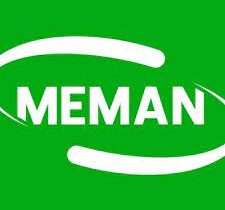
Olusola Bello
Nigeria and 13 other members of Organisation of Petroleum Exporting Countries (OPEC), lost about $1 trillion to oil price plunge between 2015 and 2016.
Mohammed Barkindo, OPEC Secretary General disclosed this on Monday in his keynote address to the Fourth Nigeria International Petroleum Summit, in Abuja, with the theme: “From Crisis to Opportunities, New Concepts”.
According to him: “In terms of foregone revenues to OPEC member countries during this oil cycle, collectively about one trillion dollars was lost as a consequence of the plunge in prices in 2015 and 2016,” he said.
The OPEC boss also warned that OPEC and its allies (OPEC+) should expect oil stockpiles to fall further in the coming months.
“We expect to see further drawdown in the months ahead.”
“The market has continued to react positively to the decisions we took, including the upward adjustments of production levels beginning in May this year.”
“The most challenging period in this most challenging of years was April 2020.
Barkindo noted that the world economy contracted by 3.5 per cent year-over-year in 2020, global oil demand declined by 9.5 mb/d, dropping further by a staggering 22 mb/d in the month of April, 2020.
“In OPEC, we were stunned by things happening that we never imagined possible. On April 20, 2020, WTI went negative for the first time in history, with prices plummeting to –$37 per barrel. Sellers were paying buyers to lift their crude.”
“In response to this unprecedented situation, OPEC knew it had to act. Thankfully, we did not need to reinvent the wheel. We turned to the mechanism that had helped us emerge out of the 2015-2016 oil market downturn: the Declaration of Cooperation (DoC). It was an effort to move from crisis to opportunity,” he added
He announced that OPEC had revised its global economic forecast up to 5.5 per cent for 2021, but with the oil demand growth forecast remaining at 6mb/d.
”It should be borne in mind that the majority of this demand is back-loaded to the second half of 2021. A backward action structure remains in all major crude oil benchmarks.
” Additionally, we saw a draw of 6.9 mb month-on-month in OECD commercial oil stock inventories in April. This is 160 mb lower than the same time one year ago and 34 mb above the 2015-2019 average.
We expect to see further draws in the months ahead,” he added.
Meanwhile, the National Assembly has reiterated its commitment to passing the Petroleum Industry (PIB) this month.
Senate President Ahmed Lawan, in his remarks, said that the legislature had a major role to play to ensure an effective oil and gas sector.
“We have been able to achieve consultation on PIB and we are working with the joint committee and, hopefully, the bill will be passed in June,” Lawan said.
Earlier, President Muhammadu Buhari had urged participants at the fourth NIPS to focus on strategies to further harness the vast hydrocarbon deposit in the country.
Represented by the minister of state for petroleum resources, Timipre Sylva, Buhari who declared the Conference open, said that while the world was focusing on energy transition, there was the need for the country to harness its potential and join the move for renewable energy.
“Governments across the world are now more focused on tracking the crises caused by COVID-19 to economies than the press for energy transition, however energy transition is real and renewable energy is cheaper.
“Investors are conscious of environmental issues and are turning their back on hydrocarbon investments, but history has shown that human beings have insatiable need for energy which renewables do not have the capacity to provide in the future.
“Experts project that 80 per cent of world’s energy needs by 2040 will come from hydrocarbons,” he said.
Similarly, he noted that while the 2020-21 recession was also caused by extraneous factors far beyond Nigeria’s borders, the devastating COVID-19 pandemic also severely impacted global oil demand, again exposing developing economies.
Commenting further on the impact of COVID -19, he said that no nation or sector of the global economy was spared, and by the end of March 2020, the world seemed a different planet to what it was at the beginning of that month.
Timipreye Sylva, minister of State for Petroleum Resources, in his remarks said that physical hosting of the 2021 NIPS was an indication of the government’s commitment to developing the sector.
He said that though COVID-19 negatively impacted the oil sector, Nigeria had remained focused on its drive to bring investments in the sector.
He said that the choice of the topic was apt as it would help stakeholders to discuss the way forward for the industry.
Sylva said that Nigeria remained focused in moving its economy to a gas economy and be relevant in the global industrialisation drive, and that the new focus to drive the sector resulted from a strong collaboration among industry players.
“With increased price volatility and increased pressure on cost reduction, our industry needs to reinvent itself so that it will utilise the dividends and set itself on track for industrialisation and prosperity.
“That is why we need to focus on new strategies. For me, the new approach is collaboration; that is the paradigm shift we need to focus on.
“I know that collaboration should be the watchword in the oil and gas industry,” he said.




